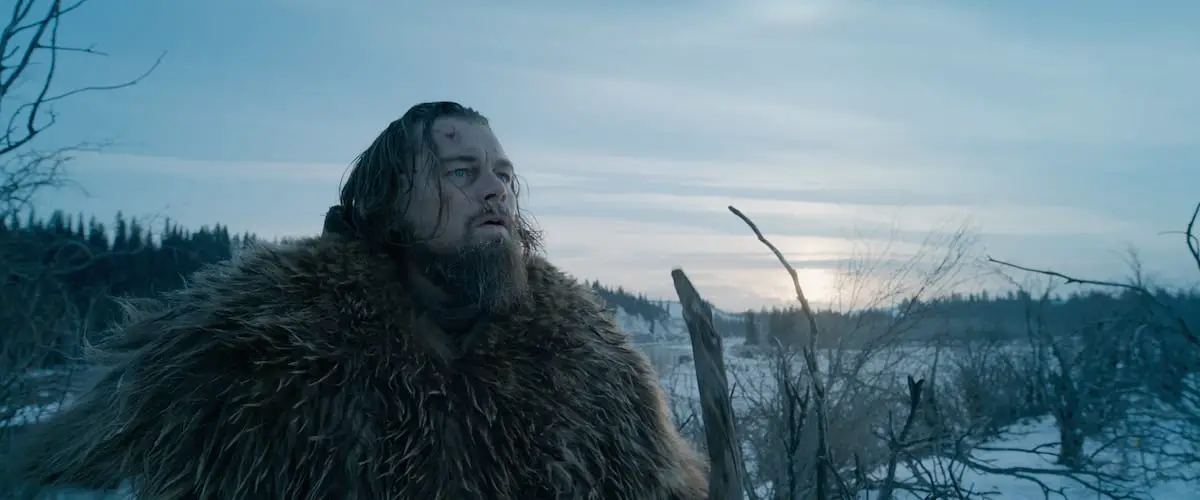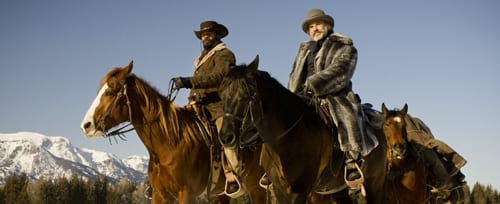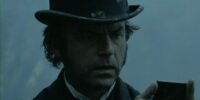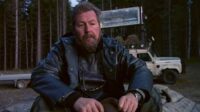The Revenant (2015)

2015’s The Revenant from Alejandro Gonzalez Inarritu is different than any other movie on this list simply for the fact that it takes place during the early stages of westward expansionism. It follows the story of Hugh Glass, the fur trapper/tracker that had to lay incapacitated—due to a vicious bear attack—and watch on as his son was murdered by one of the men that had stayed back to care for him. That man in question is Fitzgerald, another of the fur trappers. The role is filled by Tom Hardy who puts in another stellar performance. Hardy has a knack for inhabiting his characters and this is another perfect example of this.
It is not just Tom Hardy’s character work that is a massive strength of The Revenant’s, the entire cast is on point. The turn from Leonardo DiCaprio as the lead Hugh Glass is legendary. The physical assault the role had on DiCaprio’s body was next level. The level of endurance he shows does stand out but it was his work with such a lean script that was his real achievement. The way he embodies the broken Glass is so primal, so animalistic, a performance that was refined in its incredible rawness—a tour de force in the truest sense of the word from one of the best to ever grace our screens.
As I mentioned the whole cast played their part quite literally in turning The Revenant into a living breathing world. Once again the ever-reliable Domhall Gleeson and Will Poulter put in excellent performances in more supporting roles. It is quite clear that these two young actors have a bright future ahead of them, especially Gleeson, who’s apple did not fall far from the tree. It is definitely in the genes of that family and I can’t wait to see if Domhall can fill his father’s considerable shoes going forward.
Even though the acting is immense in The Revenant, it is the visuals of the harsh but beautiful landscape that these men are traversing that is its real narrative weapon. The shots of the terrain are just astonishing, it gives us some an idea of how small we are when faced with such a vast landscape—one that is filled with every bit as much danger as there is beauty. I think that contrast acts as a perfect metaphor for Hugh Glass’ journey. His life is filled with barbaric beauty, just like the land he calls home every step in his life is earned and filled with an unimaginable agony. What Innaritu really did was not only recreate a truly breathtakingly real world, but he brought it to life in a way that has never been done before or since.
Django Unchained (2012)

Quentin Tarantino doesn’t make many movies, so when he does it is a big event and 2012’s Django Unchained was no different. Everyone was excited to see how Tarantino’s take on the Spaghetti Western would play out. The story of the slave Django who is freed and then employed as a bounty hunter by Dr. King Schultz is epic and absolutely unlike anything that has ever graced the Wild West or well the Deep South in this case. Tarantino makes the viewer well aware that even though he takes his inspiration from the likes of Sergio Leone that this movie will not be lacking in the Tarantino-ness of it all.
What I mean by that is what always sticks out in Tarantino’s movies—apart from the violence—are the dialogue and the soundtrack. From the off, we are reminded of how clever a writer Tarantino is, never wasting a chance to put his ridiculously well-honed and meticulous writing style on show. Each of his movies are filled with some of the best back and forth dialogue that the world of cinema has ever known. Django Unchained has that in spades—the chemistry between Jamie Foxx and Christoph Waltz is so natural and they both are on the top of their game in this outing.
Foxx just oozes coolness and Waltz pretty much steals every scene he is in. What looks like an unlikely duo at first glance ends up being one of the best pairings that this genre has ever seen. Although Foxx and Waltz are the obvious backbones of Django Unchained, one can not forget Leonardo Dicaprio’s turn as Mr. Candy. He takes on the villainous role with such delight and proves to be the perfect foil for both of the leads—he matches Foxx in his coolness and equals Waltz in his ability to scene steal.
The journey of the two is epic and is matched in its epicness but the soundtrack. In every one of Tarantino’s movies, we are reminded that there are few directors that have the same level of control over their score as he does. Every scene is backed with so much class and just pure unadulterated awesomeness. He has this innate skill of paring the most unlikely music with what is happening on the screen and somehow always makes it work. Throughout Django Unchained the score plays as much a part of bringing the story to life as any of the characters.
It is a truly unique score for the genre. It gives Django a feel of a bluesy hip-hop neo-Western hybrid. Tarantino does what he always does and grabs a genre by the scruff of the neck and turns it up to its very maximum. The world Tarantino has crafted is filled with larger than life, crazily bombastic characters, a real glorification of the era whilst at the same time managing to be a fascinating examination of it. Once again, Tarantino recreates a real period from history but paints it with his surreal brush and like many times before manages to fill his canvas with another masterpiece.




Very interesting! I would love to read your take sometime on my own half-dozen favorite Westerns (using that definition somewhat loosely) . . . Billy Jack, Crossfire Trail, The Man Who Shot LIberty Valance, The Seven Faces of Dr. Lao, Stagecoach, and Tell Them Willie Boy Is Here.